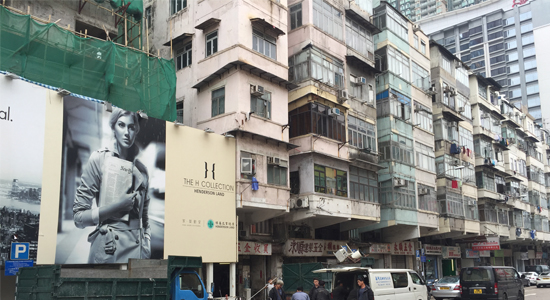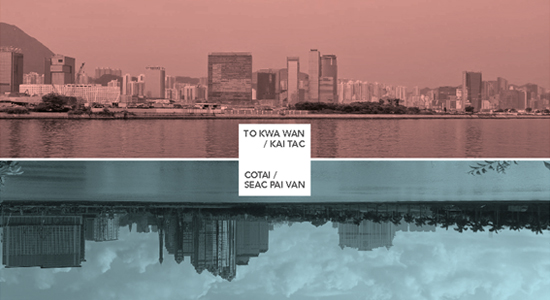Programme 2016-2017
In the coming year the M.Sc. in Urban Design programme will focus on the topic: The Entrepreneurial City. This topic has been discussed in the 1980-90, at that time focusing on “[…] the use of local governmental powers to try and attract external sources of funding, new direct investments or new employment sources” (D. Harvey, 1989). But recent questions about how to enable migrants a more successful arrival in cities and create more affordable spaces for housing and economic activities led us to the reconsideration of the topic from a new perspective. The Entrepreneurial City topic also allows us to link to the current debate on "Arrival Cities" (D. Saunders, 2011) and contribute the case of Hong Kong as an important reference..
Since its establishment as a “Free Harbor”, Hong Kong was a place for people from different cultures to arrive. Originally many migrants saw the city only as a transitional place, but then decided to stay or return. Despite Hong Kong’s difficult topography, lack of natural resources and crowded environment, newcomers were attracted by the comparably higher opportunities to take their life into their own hands, build-up businesses and thrive. However, in recent years urban renewal, increasing property prices, strict management rules as well as inflexible land use and urban typologies have constrained self-organized economic and innovative initiatives. The aim of the Entrepreneurial City Lab is to develop design and planning approaches which create affordable spaces for working and living, and encourage self-driven economic activities and social networking. Both studios and thesis with explore this topic. The first studio will focus on the regeneration of an existing area, which already has related qualities, while the second will propose the design of new areas.
Term 1:

URBAN DESIGN STUDIO I:
ENTREPRENEURIAL CITY LAB 1
RE-VISIONING TO KWA WAN
In the academic year 2016-17, the MSC in Urban Design will focus on the "Entrepreneurial City". In the Chief Executive’s policy address in 2016, the government unveiled a raft of initiatives to boost Hong Kong's innovation, technology, and creative sectors. While the city has developed projects and areas such as Science Park, InnoCentre, and Cyber Port, these often lack connectivity the with vibrant, contemporary life of the urban aeas. In contrast, historically To Kwa Wan has been a hub of small scale local business. Adjacent to the old Kai Tai Airport, and Energising Kowloon East Office’s (EKO) master plan for a second CBD, To Kwa Wan is characterised by unique urban fabrics and morphologies such as the “13 Streets and 5 Streets ” area. The district is also known as an “Arrival City” for mainly Indians, and Pakistanis who provide the diversity of culture, religion, business and lifestyle into the neighbourhood. Initially attracted by lower rents, To Kwa Wan became the first place where South Asians come to HK, settle down and develop the community around this area.
Instructor: Casey Wang
Teaching Assistant: CHEN Yongming
(Read the course description here as PDF)
Term 2:

URBAN DESIGN STUDIO II:
ENTREPRENEURIAL CITY LAB 2
RE--SCRIPTING URBAN SPACE IN HONG KONG AND MACAU
The second studio continues the research on the Entrepreneurial City of the first studio but is organized as comparative studio. It uses a common theme and tests it in two different sites in Hong Kong and Macau. The methodology of comparative studies allows students to explore different design approaches and learn from the comparison of two sites which are both similar and different.
Conceived as part of our Entrepreneurial City Lab, the studio will explore innovative strategies for future vibrant districts. Based on the experiences of the first term and continuing research, students will develop innovative proposals for the urban expansions of Cotai / Seac Pai Van (Macau) and To Kwa Wan / Kai Tak (Hong Kong), while contemplating on new urban rules and guidelines.
Governments, real estate developers and industrial corporations often promote contemporary developments with profitability and production targets. In this studio we will take a different approach and focus on the entrepreneurial city as a place that enables and facilitates start ups, development of innovative business models, flexible to evolve over time, vibrant urban spaces welcoming foreigners and locals, and as cluster for innovation with a positive impact on the immediate surroundings and the overall city. This studio presents a challenge and opportunity to develop top down design strategies and rules, which enable and facilitate bottom up initiatives.
Instructor: Nuno Soares